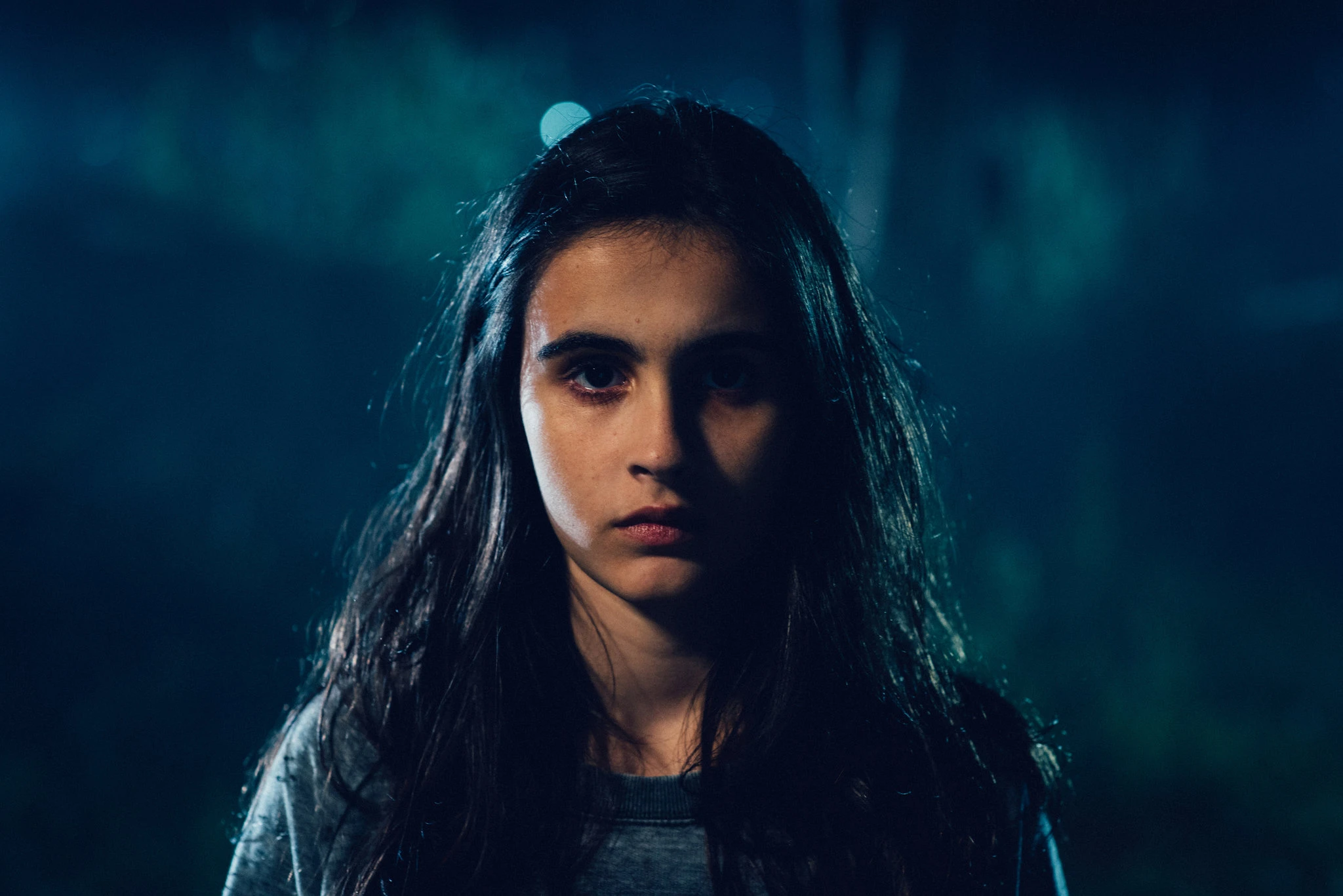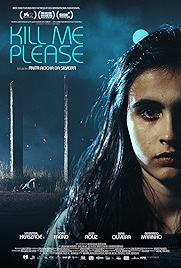Sex and death go hand in hand in Anita Rocha da Silveira’s impressive feature debut, Kill Me Please (Mate-Me Por Favor) which would look like a fairly simple coming-of-ager if it weren’t for a pre-credits sequence which puts a morbid kink in everything that follows.
It’s arresting in itself – a lock shot of a young woman staring straight into the camera at some nightclub, close up. The camera holds, holds, holds and she stares, stares, stares. Eventually a tear rolls down her cheek. It might be just a bad night out or something else. We never find out, because the nameless woman is soon dead, having been jumped on as she totters home half drunk through the warm Rio de Janeiro night.
From here a skip across town to where Bia (Valentina Herszage) and her friends Renata (Dora Freind), Mariana (Mari Oliveira) and Michele (Júlia Roliz) are high school students whose twin obsessions are the boys they want to have sex with – and do – and the latest of a string of deaths of young women in the neighbourhood.
The usual high-school coming-of-age scenarios play out – petty rivalries, jealousies, dancing at clubs, making out with boys – though at a certain point the girls’ run-of-the-mill existence is brutally disrupted when Bia and co find the killer’s latest victim dying on wasteground. In a bizarre twist on another coming-of-age staple – emerging sexuality – Bia kisses the dying girl on the lips, which she’ll later claim was an attempt to save her through mouth-to-mouth.
Kill Me Please is unusual in several ways, but most obviously because of the focus on the sex drives of young women. Bia and her pals are ravenous for it, and Rocha da Silveira stuffs her film with them locked in embraces, rubbing themselves up against one boyfriend or another, staring moodily at a hunk who got away, or wearing various love injuries (love bites) as badges of honour.
There are other, competing, claims on Bia and her friends’ attention. Like the evangelical female pastor in the low-cut top who finishes each rousing service with a disco song about “the dude from Nazareth”.
In a way that seems almost casual, as the young women, Bia in particular, become fixated on the deaths around them, the grisly events start to colour their lives and subtly shift their personalities.
And at a certain point it seems to become at least a possibility that what we’re watching is a very oblique sort of horror film. Bia’s brother, the one who sits at home all day on the laptop and never goes out, except at night to DJ at a party, what’s the deal with him?
There is more incidental wounding and low-level physical damage – a busted nose, a black eye, a bandaged ear, a gashed forehead, an eruption of herpes – than you’d usually find in this sort of thing, subtle nudges in a film that often prefers poetic rather than logical leaps in the narrative.
Herszage’s is a good performance that goes beyond her pretty face with its mask of teenage boredom to something more questing and questioning. Minimal but meaningful.
Emblematic of the entire film, in fact, which prefers to leave clues rather than plant signposts, with Bernardo Uzeda’s growling soundtrack filling in the atmospheric gaps.
If it all sounds a bit serious, it isn’t. There are moments of excitement, some humour (that use of The Manhattans’ song Kiss and Say Goodbye is very funny) and plenty of reminders of that time in your life when sex, snacks, parties and music were really what it was all about.
Sean Baker, director of Tangerine, The Florida Project and Red Rocket, has been vocal in his praise for Kill Me Please and there are similarities in the loose, loping style. The film did well on the festival circuit when it was released in 2015, which isn’t bad for a debut, but even so it took six years before Rocha da Silveira could follow it up, with the even better received Medusa.
Kill Me Please – Watch it/buy it at Amazon
I am an Amazon affiliate
© Steve Morrissey 2023


